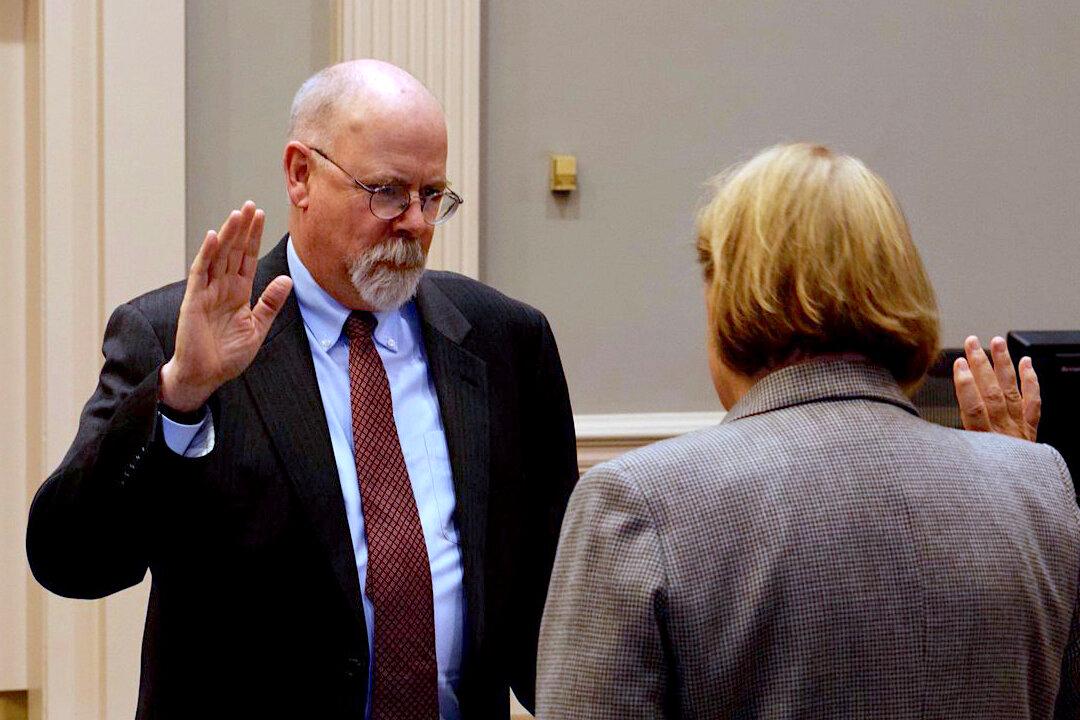A federal judge has turned down a request from Special Counsel John Durham, essentially limiting evidence and testimony from the Clinton campaign and Democratic National Committee that prosecutors can use against former Clinton campaign attorney Michael Sussmann.
The ruling means that documents and testimony in the case could potentially suggest that the Clinton campaign and Democrats coordinated to push since-discredited allegations that in 2016, then-presidential candidate Donald Trump or his allies had a secret back channel between Trump Tower and a Russian bank. Democrats foisted that allegation, among others, in a bid to claim that Trump had ties with Russia, which became a narrative used by the mainstream media during much of his presidency.





